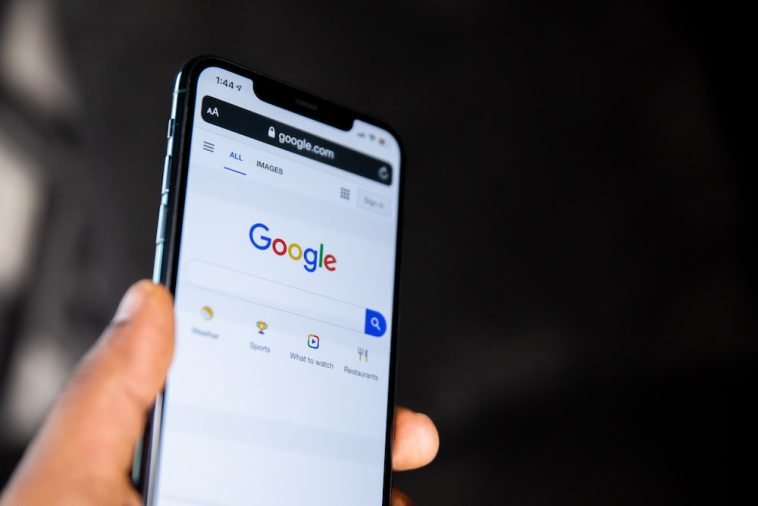When I launched my first website, I thought it would appear on Google instantly. I mean, I put in the work—designed the layout, added solid content, and hit publish. But days went by, and nothing. It was like shouting into a void.
Turns out, just creating a website isn’t enough. If your site isn’t showing up on Google, it might as well not exist—because that’s where 92% of all web traffic starts.
And here’s the thing: getting your website on Google is 100% free. You just need to know how it works and what steps to take.
In this guide, I’ll walk you through everything you need to do to ensure Google indexes your site and starts ranking it. No fluff. No complicated jargon. Just real, practical steps that work.
Why Google Search Matters So Much
Google processes over 8.5 billion searches per day (source). If your website isn’t listed in search results, you’re missing out on traffic, leads, and customers.
It doesn’t matter if you’re running a blog, an online store, or a personal portfolio. If you want people to find you online, you need to get indexed by Google. Good news is, it’s not hard, and you don’t need to pay anyone for it.
How Do I Get My Website on Google (for Free)?
Here’s what you need to do.
1. Make Sure Your Site Is Live and Crawlable
Google can’t index what it can’t access.
Check that your site is publicly available (not password-protected).
Use clean links (URLs that make sense, like
yourdomain.com/about).Make sure you don’t have a
noindextag in your HTML accidentally telling Google to ignore your pages.
Pro tip: Go to your browser and type in:site:yourdomain.com
If nothing shows up, your site isn’t on Google yet.
2. Create and Submit a Sitemap
A sitemap is like a roadmap of your website. It helps Google understand the structure of your pages.
Most website builders (like WordPress, Wix, Squarespace) generate a sitemap automatically.
To check your sitemap:
Go to yourdomain.com/sitemap.xml
Then:
Head over to Google Search Console
Sign in (or create an account)
Add your website as a property
Submit your sitemap
This tells Google, “Hey, here’s my website—please check it out.”
3. Get a Google Search Console Account (If You Haven’t Already)
Search Console is free and honestly one of the most useful tools you’ll ever use. You can:
See which pages are indexed
Track performance (clicks, impressions, rankings)
Fix issues if Google has trouble reading your site
Once you verify your site, Google usually starts crawling it within a few days.
4. Optimize for Basic SEO (Search Engine Optimization)
Don’t let the term “SEO” scare you. You don’t need to be an expert to do the basics right:
Title tags: Every page should have a clear, short title that includes your main keyword.
Meta descriptions: These show up in search results—make them descriptive and helpful.
Headings (H1, H2, etc.): Break up content with clear headings.
Internal linking: Link to other pages within your own site.
Alt text for images: Helps with image SEO and accessibility.
Use keywords naturally. Don’t stuff them into every sentence. Just write the way people search.
5. Get Other Sites to Link to Yours (Backlinks)
Google sees links from other sites as “votes” of trust.
You don’t need a million links, but even a few quality ones can make a big difference.
Try this:
Share your site on relevant forums or Reddit (without spamming)
Guest post on blogs in your niche
Ask friends, clients, or collaborators to link to you
6. Create Useful, Original Content
Google’s entire goal is to serve people the most helpful content. If your site offers real value, Google will want to show it.
That means:
Don’t copy content from other websites
Focus on topics your audience cares about
Use simple language
Keep updating your content to keep it fresh
If you’re stuck, think about what people would type into Google to find your site—and answer that.
7. Mobile-Friendly and Fast Loading
Google gives priority to websites that are easy to use on phones. Since over 60% of searches come from mobile, this is a big deal.
Use Google’s Mobile-Friendly Test to check.
Also, use PageSpeed Insights to test your site’s speed. Faster sites rank better and keep people around longer.
8. Secure Your Site with HTTPS
If your website doesn’t have a secure connection (HTTPS), Google will show a “Not Secure” warning—and that can scare people off.
Most website hosts now include a free SSL certificate. If you’re not sure, ask your provider or check if your URL starts with https://
How Long Does It Take for Google to Index a Site?
It varies.
If your site is brand new: a few days to a few weeks
If you’ve submitted your sitemap and everything looks good: faster
If your site has backlinks and consistent updates: even faster
There’s no exact timeline, but using Search Console will give you updates once Google starts indexing your pages.
What If My Website Still Isn’t Showing Up?
Try these steps:
Double-check that your site isn’t blocked in
robots.txtMake sure you don’t have a
noindextag in your HTMLSubmit individual URLs for indexing in Search Console
Look for crawl errors in Search Console
Add more quality content
Get more backlinks
Still stuck? Use the URL Inspection Tool in Search Console to see how Google views your page.
FAQs
Do I need to pay to get listed on Google?
No. Google doesn’t charge to index your site or show it in search results. Anyone offering to do this for a fee is likely selling something you don’t need.
Is it better to use WordPress or another builder?
Google doesn’t care what platform you use—as long as the site is crawlable, fast, mobile-friendly, and has quality content.
What if I change my website URL later?
If you move your site or change your domain, you’ll need to set up redirects and update your property in Search Console.
Can I hide certain pages from Google?
Yes. You can use a noindex tag or block them in your robots.txt file. This is helpful for admin pages, test pages, or anything private.
Final Thoughts
Getting your site on Google isn’t hard—but it does take a little effort. Once you’ve done the basics (sitemap, Search Console, clean structure, solid content), you’ve already handled the most important parts.
It’s not about tricking Google. It’s about helping people find your stuff by making it easy for Google to understand what your site’s about.
So, what step are you going to take today to get your website on Google search—for free?





GIPHY App Key not set. Please check settings